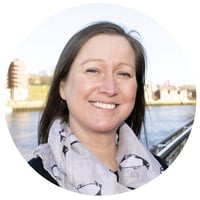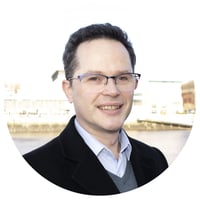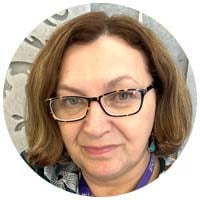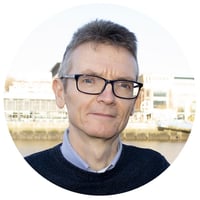Research and Development Team

Emma Barthel, Assessment Development Manager
Drawing on 15 years’ experience as a primary school teacher, Emma has added valuable insight and practical expertise in the development of Cambridge Insight's (formerly CEM) Early Years assessment (BASE). Emma also takes a leading role in the development of Cambridge Insight's high-stakes assessments, from liaising with schools to writing assessments to trialling and statistical analysis. Along with her Primary PGCE, Emma holds a BSc in Chemistry from Durham University as well as a Post-Graduate Diploma in Educational Assessment.
Emma has a particular interest in the development of mathematics assessments and is currently collaborating with Cambridge Mathematics to embed their extensive research into Cambridge Insight's products.

Matthew Carroll, Senior Research Officer
Matthew is a senior researcher in Cambridge University Press & Assessment’s groupwide research division, with special responsibility for Cambridge Insight-focused research. He has worked in education research since 2017, but prior to this was a scientist working in the field of conservation ecology. Matthew holds a degree in Natural Sciences from the University of Cambridge, and an MRes and PhD from the University of York. He has also been a science communicator, working with school groups in the North East of England.
Matthew has worked closely with Cambridge Insight’s Research and Development Team since 2020. He helps to establish collaborative research projects with the wider group research division, provides an extra source of analytical advice, and has carried out research into areas including the impacts of Covid on teachers in Cambridge Insight schools and the links between performance in Cambridge Insight tests and high-stakes examinations.

Gideon Copestake, Assessment Development Lead
Gideon leads the team of assessment developers on the creation of new assessment content, scoping and constructing new assessments, evaluating assessment content and statistical analysis. Formerly a primary school teacher, Gideon holds an MSc in Educational Assessment along with a BSc (Hons) in Engineering and a PGCE (Upper Primary).
In his 18 years at Cambridge Insight, Gideon has extensive experience working as a Statistical Officer and Research Associate for the development of Cambridge Insight’s Early Years assessment (PIPS Baseline). He is currently overseeing a multi-disciplinary working group, coming up with ideas for, and investigating viability of, new assessment initiatives.

Lyn Dale, Senior Assessment Manager
Lyn is an assessment specialist with over 16 years’ experience in design, validation and use of psychometric tests in education and business. She has drawn on her Master’s degree in occupational psychology and measurement to manage large-scale assessment projects in education. As the lead developer for student personal styles assessments, Lyn is experienced at construct mapping, item creation, test trialling and data evaluation. She has played a key role in digital assessment projects and learning management system content creation across Cambridge University Press & Assessment.
Lyn is an active member of the British Psychological Society and has spoken internationally on measurement topics that address the psychology of effective studying and student retention. She advises secondary and higher education, and vocational training on personal attribute and ‘soft skills’ measurement. A qualified business coach, Lyn has a special interest in using assessment and coaching techniques to improve student outcomes.

Chris Jellis, Senior Research Associate
Chris has been with Cambridge Insight since 2003. Beginning as a biological scientist, he has worked on vaccine development and studied gene sequencing among other topics. After gaining his PGCE in Science Education at Hull University, Chris spent fifteen years teaching IT and Business Studies. He also holds Bachelor’s degrees in Biology and English and Master’s degrees in Education and Education Assessment.
In 2007, he was awarded his Doctorate in Education at Durham University with a thesis entitled ‘Metalearning: PGCE Students Learning about Learning’. A dedicated lifelong learner, Chris has interests in all aspects of learning, from creating new assessments to researching characteristics of student knowledge and understanding. He currently co-chairs the Research Ethics Committee of Cambridge University Press and Assessment.

John Little, Statistician
As statistician within Cambridge Insight with over 20 years’ experience, John is responsible for developing and refining the adaptive algorithms that sit behind almost all Cambridge Insight assessments. He provides bespoke analysis and statistical insight to a range of schools from their Cambridge Insight test results. John graduated with a Master’s degree in Maths and Statistics and holds a PhD in Bayesian Spatio-Temporal Modelling from Durham University.
John’s recent projects have included work with the wider Cambridge University Press and Assessment group on the impact of Covid and to see how Cambridge Insight data can be used beyond its original application.

Andrew Lyth, Statistician
Beginning as a Research Associate in 1999, Andrew previously worked on the mathematical modelling of trends in Household Demography. His first degree was in Maths, and he has a Master’s degree in Statistics. Andrew specialises in predictions and value-added methodologies. His role includes explaining the statistics and methodologies that underpin students’ results to schools.
Working on a variety of different research projects, Andrew has covered topics such as: mental health; interventions to increase students’ physical activity; and the impact of lockdowns on students’ performances. His next research project will use data from the National Pupil Database to investigate relationships between performances on Cambridge Insight's assessments and attainment at Key Stage 4.

Catherine McKenna, Assessment Development Manager
Catherine has over 10 years’ experience of developing high-stakes assessments and takes a leading role in the creation of high-quality cognitive ability assessments. She also plays a key part in the development of new wellbeing products for primary and secondary students, utilising her BSc (Hons) in Psychology, MSc in Occupational Psychology and interest in research.
Instrumental in designing and constructing new assessments, Catherine develops new items, peer reviews content, evaluates assessment performance, and conducts literature reviews and statistical analyses. Whilst she develops both verbal and non-verbal assessment content, Catherine has a specialist focus in developing non-verbal reasoning assessments.

